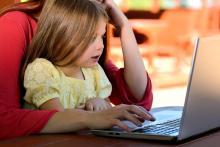Latvijas Lauksaimniecības universitāte
Country: LV
Partner budget: 161.061 EUR
Amount of ERDF funding: 127.238 EUR ERDF

P4 Skilled and socially inclusive region
4.1. More people benefiting from stronger Central Baltic communities
Central Baltic
01.08.2019 - 31.12.2021
239.574 EUR
189.263 EUR ERDF
In Latvia and Estonia stay-at-home mothers of pre-school-age children belonging to ethnic minority groups - generally of Russian, Belarusian, Ukrainian and Polish origin - are often at risk of social exclusion. Their potential in the job market is left unharnessed.
The project aims at creating a model to foster their employability and involvement in entrepreneurship through an interactive ICT platform and a series of supporting events. The platform will offer mentoring, networking, matchmaking and self-learning possibilities. Round-table discussions on employment, Entrepreneurship Days “Running own business is an option!” and Networking people-to-people events will be organized. Volunteering options will be provided.
The expected result of the project is more self-fulfilled mothers that could contribute to creating a healthier community. It is expected that 460 mothers and 100-120 other stakeholders will be involved in the project.
Country: LV
Partner budget: 161.061 EUR
Amount of ERDF funding: 127.238 EUR ERDF
Country: EE
Partner budget: 3.818 EUR
Amount of ERDF funding: 3.016 EUR ERDF
Country: EE
Partner budget: 74.695 EUR
Amount of ERDF funding: 59.009 EUR ERDF
Country: LV
As its main result, project ActiveMoms developed a holistic model for social inclusion of women who stay at home with their pre-school-age children, do not participate in labour market and belong to Latvia’s and Estonia’s largest ethnic minorities. The model aims to support the social integration of target group through employment, entrepreneurship, volunteering and networking and can be used by other organisations supporting similar target groups. All methods used in the model were piloted with the target group.
ActiveMoms also developed an ICT platform which made it possible to find a mentor from another country and get support based on international experience, as well as communicate with a mother from another country and discuss with her the possibilities of a common business. Volunteer opportunities in in both countries were also provided and used by mothers.
Active Moms was a good example of a project where joint activities were implemented for target groups from different countries. Thereby, the cross-border effect was achieved in a very practical way. Project participants (young mothers) were able to compare their situation and possible solutions for social and labour market integration with people in similar situation in neighbouring country. Participation in the cross-border events provided the target group from Latvia and Estonia an opportunity to get to know stakeholders and entrepreneurs from both countries, to learn about the various possibilities for entering the labour market after a significant break, including through starting their own business.
Finally, the cross-border approach allowed the target group representatives to better understand each others’ mentality, differences and similarities and build personal relationships. This has a positive impact on the social inclusion and labour market entry of moms in both countries and contributes to the well-being of their families in the Programme area.
The Holistic model for social inclusion of target group representatives through employment, entrepreneurship, volunteering and networking:
https://www.llu.lv/sites/default/files/files/projects/Model%20for%20Social%20Inclusion%20TGRs.pdf
Lead partner webpage - project link
Project partner webpage - about project
Darbīgās mammas “Active Moms” – jauna tendence darba tirgū (bauskasdzive.lv; 16.01.2020)
INTERREG “RADA UN RĀDA”: SIEVIETES AR JAUDU UN SMAIDU (Interreg.lv; March 2021; In Latvian)
Interview with Active Moms (in Russian, can be viewed with subtitles in Youtube)